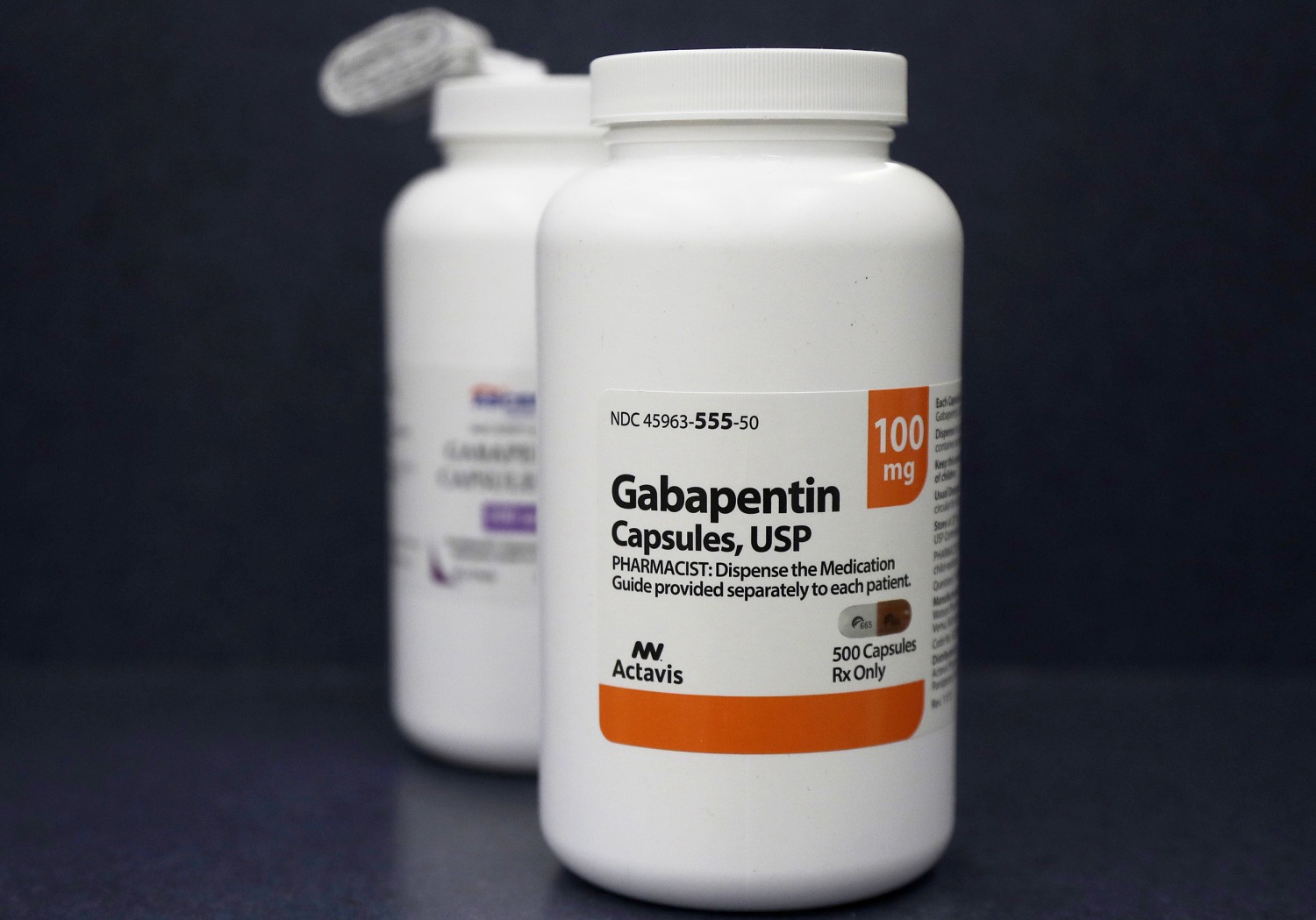Gabapentin Uses, Price, and Side Effects 2023. In the intricate world of pharmaceuticals, Gabapentin, known by its brand name Neurontin, stands as a testament to medical innovation and progress. This medication, primarily utilized in the treatment of seizures and neuropathic pain, belongs to the esteemed anticonvulsant class of drugs. Its profound impact on the nervous system has revolutionized the management of various health conditions, offering relief and hope to millions worldwide. In this detailed exploration, we unravel the complexities of Gabapentin, shedding light on its mechanism, diverse applications, and the myriad benefits it brings to those in need.

What is Gabapentin?
Gabapentin operates as a neuromodulator, exerting its effects on the central nervous system. It achieves this by specifically targeting the way nerves communicate with the brain. In intricate neural networks, messages travel through electrical impulses. Gabapentin steps into this process, acting as a regulator that modulates these impulses. By doing so, it calms hyperactive nerve signals, effectively dampening abnormal electrical activity in the brain. This unique mechanism forms the foundation of its efficacy in managing seizures and neuropathic pain.
Mechanism of Action of Gabapentin
Calming Hyperactive Nerves:
At its core, Gabapentin is a neuromodulator. It operates within the central nervous system, precisely where nerve signals are transmitted and received. In conditions like epilepsy and neuropathic pain, nerve signals can become hyperactive, leading to abnormal electrical activity in the brain. Gabapentin steps in as a regulator, modulating these impulses. By calming the hyperactive nerves, Gabapentin effectively dampens the abnormal electrical activity, reducing the intensity and frequency of seizures and alleviating neuropathic pain.
Targeting Calcium Channels:
Gabapentin exerts its influence by targeting specific calcium channels in the nervous system. These channels play a pivotal role in transmitting signals between nerve cells. By binding to certain subunits of voltage-gated calcium channels, Gabapentin inhibits the influx of calcium ions. This inhibition results in a decreased release of neurotransmitters, the chemical messengers responsible for transmitting signals between nerve cells. By modulating the release of neurotransmitters, Gabapentin fine-tunes the communication between nerves, effectively calming the nervous system.
GABAergic System Modulation:
Gamma-aminobutyric acid, or GABA, is a neurotransmitter known for its inhibitory effects in the brain. It counteracts the excitatory signals that can lead to seizures or heightened nerve sensitivity. Gabapentin indirectly enhances the activity of GABA in the brain. Although the exact mechanism is not fully understood, it is believed that Gabapentin boosts the synthesis and release of GABA or enhances its binding to receptors. This increased GABAergic activity reinforces the inhibitory effects, further calming the nerves and reducing abnormal electrical activity.
Altering Synaptic Transmission:
Gabapentin’s impact extends to the synapses, the junctions between nerve cells where signals are transmitted. It modulates the release of several neurotransmitters, including glutamate, which plays a key role in excitatory signaling. By reducing the release of glutamate, Gabapentin exerts an inhibitory effect on synaptic transmission. This alteration in neurotransmitter release contributes to the overall calming effect, preventing excessive excitation of nerve cells.
In essence, Gabapentin’s mechanism of action is a symphony of precise interactions within the intricate neural networks of the human body. By targeting hyperactive nerves, specific calcium channels, the GABAergic system, and synaptic transmission, Gabapentin orchestrates a harmonious balance in the nervous system. This balance, achieved through the modulation of various signaling pathways, results in the alleviation of seizures and neuropathic pain, offering relief to countless individuals.
Uses of Gabapentin

Chronic Pain Management: A Beacon of Relief
Gabapentin’s efficacy in managing chronic pain is unparalleled. It has become a go-to solution for individuals suffering from neuropathic pain conditions such as diabetic neuropathy, postherpetic neuralgia, and fibromyalgia. By modulating pain signals in the central nervous system, Gabapentin provides respite to those burdened by persistent, debilitating pain. Its ability to target nerve-related pain makes it a preferred choice for both patients and healthcare providers.
Epilepsy and Seizure Disorders: Pioneering Epilepsy Management
Originally developed to treat seizures, Gabapentin remains a foundational medication for epilepsy management. Its mechanism of action, which involves calming hyperactive nerve signals, has proven effective in reducing the frequency and intensity of seizures. For individuals diagnosed with epilepsy, Gabapentin offers the possibility of a more stable and fulfilling life, free from the constant threat of unpredictable seizures.
Neuropathic Pain: Alleviating Nerve-Related Discomfort
Gabapentin’s effectiveness in addressing neuropathic pain extends to a myriad of conditions, including nerve compression syndromes and peripheral neuropathy. Whether caused by diabetes, injury, or other medical conditions, nerve-related pain can be excruciating. Gabapentin’s ability to dampen aberrant nerve signals offers relief to individuals suffering from neuralgia, radiculopathy, and other nerve-related discomforts, significantly improving their quality of life.
Anxiety Disorders: A Calm Amidst the Storm
Anxiety disorders, characterized by excessive worry and fear, can be debilitating. Gabapentin’s calming effects on the nervous system make it an invaluable adjunctive treatment for individuals battling anxiety disorders. By stabilizing neural activity and reducing excitatory signals, Gabapentin promotes a sense of tranquility, offering relief from the relentless grip of anxiety. Its role in anxiety management has paved the way for improved mental well-being for numerous patients.
Bipolar Disorder: Balancing Mood Swings
Bipolar disorder, marked by intense mood swings between mania and depression, poses significant challenges for those affected. Gabapentin has shown promise in stabilizing mood fluctuations, serving as a valuable mood stabilizer alongside other medications. By modulating neurotransmitter activity, Gabapentin helps in achieving a more balanced emotional state, allowing individuals with bipolar disorder to manage their condition effectively.
Sleep Disorders: Enhancing Restorative Sleep
Sleep disturbances, often intertwined with underlying medical conditions, impact the overall well-being of individuals. Gabapentin’s ability to induce relaxation and tranquility not only improves sleep quality but also addresses the root causes of sleep disturbances. By promoting restorative sleep, Gabapentin offers a pathway to enhanced vitality and energy, enabling individuals to wake up feeling refreshed and rejuvenated.
Alcohol Withdrawal: Easing the Path to Sobriety
Alcohol withdrawal can be a harrowing experience, marked by physical and psychological symptoms. Gabapentin has emerged as a supportive agent in alcohol withdrawal management. By mitigating withdrawal symptoms and reducing the cravings associated with alcohol cessation, Gabapentin facilitates a smoother transition to sobriety. Its role in alcohol withdrawal protocols has provided hope for individuals seeking recovery from alcohol addiction.
Restless Legs Syndrome: Calming the Restless Limbs
Restless Legs Syndrome (RLS), characterized by uncomfortable sensations in the legs and an irresistible urge to move them, can severely disrupt sleep and daily activities. Gabapentin’s ability to modulate nerve signals proves beneficial in alleviating the symptoms of RLS. By calming the restless limbs and reducing the urge to move, Gabapentin offers relief to individuals afflicted by this neurological disorder, allowing them to regain control over their rest and comfort.
Postoperative Pain Management: Reducing Discomfort
Gabapentin has found applications in the realm of postoperative pain management. By modulating pain signals and reducing nerve sensitivity, it aids in controlling post-surgical discomfort. Incorporating Gabapentin into postoperative pain protocols not only enhances pain relief but also contributes to a smoother recovery process, allowing patients to focus on healing and rehabilitation.

Cancer-Related Pain: Enhancing Palliative Care
For individuals battling cancer, pain management is a crucial aspect of palliative care. Gabapentin’s effectiveness in addressing neuropathic pain associated with cancer and its treatments has made it a valuable addition to palliative care regimens. By providing relief from cancer-related pain, Gabapentin enhances the quality of life for patients, offering comfort and solace during challenging times.
Migraine Prevention: Alleviating the Burden of Migraines
Chronic migraines can significantly impact the daily lives of affected individuals. Gabapentin has shown promise in migraine prevention, reducing the frequency and intensity of migraine attacks. By modulating neural activity and minimizing the triggers that lead to migraines, Gabapentin offers a ray of hope for migraine sufferers, allowing them to experience a life with fewer debilitating headaches.
Neuropsychiatric Disorders: Managing Behavioral Symptoms
Gabapentin’s calming effects extend to neuropsychiatric disorders, where behavioral symptoms such as agitation, aggression, and irritability can pose challenges for both patients and caregivers. By stabilizing neural activity, Gabapentin aids in managing these symptoms, promoting a more serene and manageable environment for individuals affected by neuropsychiatric disorders. Its role in behavioral management showcases its diverse applications in the field of mental health.
Factors Influencing Gabapentin Prices:
To buy then check out the link below:

Dosage Strength: Tailoring Treatment, Balancing Costs
Gabapentin is available in various dosage strengths, allowing healthcare providers to tailor treatments to individual patient needs. However, it’s essential to note that higher dosages often come at a higher price point. Patients requiring stronger doses may find themselves navigating increased costs. It underscores the importance of precise dosage management, ensuring that patients receive the required relief without unnecessary financial burden.
Brand vs. Generic: Affordability in Generic Alternatives
One of the fundamental factors shaping Gabapentin prices is the choice between brand-name and generic versions. Generic Gabapentin, while chemically identical to its brand-name counterpart, comes at a significantly more affordable price. The availability of generic options has revolutionized access to this essential medication, making it economically feasible for a broader spectrum of patients. Healthcare providers often opt for generics to promote cost-effective yet equally effective treatments.
Insurance Coverage: Alleviating Financial Strain
The landscape of insurance coverage plays a pivotal role in Gabapentin accessibility. Insurance plans may cover generic Gabapentin, reducing out-of-pocket expenses for patients. Understanding the specifics of insurance coverage, including copays and deductibles, enables patients to navigate the financial aspects of their treatment effectively. Healthcare providers, too, can assist patients by prescribing covered medications, ensuring that financial strain does not impede access to necessary treatments.
Purchasing Platforms: Online Convenience vs. Local Accessibility
The choice of purchasing platform adds another layer of complexity to Gabapentin pricing. Online pharmacies and local drugstores may offer varying prices for the same medication. Online platforms often provide competitive rates and the convenience of doorstep delivery. However, patients must exercise caution, ensuring the legitimacy and safety of online pharmacies. Local drugstores, on the other hand, offer immediate accessibility and personalized service but may have fluctuating price points. Comparing options and exploring reliable sources can help patients secure the best possible price for their Gabapentin prescriptions.
Gabapentin Side Effects

The Common Side Effects: Navigating the Norms
Dizziness and Drowsiness:
One of the most commonly reported side effects of Gabapentin is dizziness and drowsiness. These symptoms often occur, especially at the beginning of the treatment, as the body adjusts to the medication. Patients are advised to avoid activities that require mental alertness, such as driving until they know how Gabapentin affects them.
Fatigue and Weakness:
Gabapentin can cause feelings of fatigue and weakness, which might impact daily activities. Patients often report a lack of energy and general tiredness. It is essential to rest adequately and consult healthcare providers if these symptoms persist or worsen over time.
Gastrointestinal Disturbances:
Nausea, vomiting, and diarrhea are relatively common side effects of Gabapentin. These symptoms can affect the patient’s appetite and overall well-being. Maintaining proper hydration and seeking medical advice for managing gastrointestinal disturbances are crucial steps in mitigating these effects.
Coordination Problems:
Some individuals may experience coordination problems while taking Gabapentin. This can manifest as clumsiness or unsteadiness. Patients are advised to be cautious, especially while walking or engaging in physical activities, to prevent falls or accidents.
The Less Common, Yet Serious Side Effects: Vigilance is Key
Mood Changes and Behavioral Shifts:
Gabapentin can occasionally lead to mood changes, including increased irritability, agitation, or even suicidal thoughts. While these instances are rare, it is imperative for patients and their caregivers to monitor for any unusual behavioral shifts and report them promptly to healthcare providers.
Allergic Reactions:
In rare cases, Gabapentin can trigger allergic reactions, such as skin rashes, itching, swelling of the face, lips, tongue, or throat, and difficulty breathing. These signs necessitate immediate medical attention. Patients should seek emergency care if they experience any of these symptoms after taking Gabapentin.
Serious Skin Reactions:
Severe skin reactions, although rare, can occur with Gabapentin. Conditions like Stevens-Johnson syndrome and toxic epidermal necrolysis are potentially life-threatening skin disorders associated with this medication. Patients should be vigilant and report any signs of skin rashes, blisters, or peeling to their healthcare providers urgently.
Peripheral Edema:
Gabapentin can cause peripheral edema, characterized by swelling in the legs and arms due to fluid retention. Patients with a history of heart failure or kidney problems are at a higher risk. Monitoring weight and promptly reporting any swelling or discomfort to healthcare providers is crucial for managing this side effect.
Long-term Use Considerations: Delving into Chronic Effects
Tolerance and Dependence:
With prolonged use, some patients might develop tolerance to Gabapentin, requiring higher doses to achieve the same level of pain relief. Additionally, dependence and withdrawal symptoms can occur if the medication is suddenly discontinued. It is essential to follow healthcare provider guidelines for tapering off Gabapentin gradually, ensuring a smooth transition.
Cognitive Impairment:
Long-term use of Gabapentin has been associated with cognitive impairment, including memory problems and difficulty concentrating. Patients experiencing these issues should consult their healthcare providers for a comprehensive evaluation of their cognitive function.
Renal Impairment:
Individuals with pre-existing kidney problems should use Gabapentin cautiously, as it is primarily excreted through the kidneys. Dose adjustments might be necessary for patients with renal impairment to prevent the accumulation of the medication in the body.
Gabapentin Precautions: Safeguarding Your Health
Consultation with Healthcare Providers: The Foundation of Safe Usage
Before embarking on Gabapentin treatment, consulting a qualified healthcare provider is non-negotiable. Your healthcare provider will evaluate your medical history, existing conditions, and potential interactions with other medications to determine the appropriate Gabapentin dosage and course of action. Transparent communication about allergies, existing medications, and any past adverse reactions is essential to the safe prescription of Gabapentin.
Dosage Adherence: Precision is Key

Adhering strictly to the prescribed dosage is pivotal for safe Gabapentin use. Deviating from the recommended dosage, whether by increasing or decreasing it, can lead to unexpected side effects or reduced efficacy. Your healthcare provider will carefully calculate the optimal dosage based on your specific condition and medical history. Any adjustments should only be made under their expert guidance.
Gradual Tapering Off: Avoid Abrupt Discontinuation
Abruptly discontinuing Gabapentin can lead to withdrawal symptoms and adverse reactions. If your healthcare provider decides to stop your Gabapentin treatment, they will develop a tapering-off plan tailored to your needs. This gradual reduction of dosage allows your body to adjust, minimizing the risk of withdrawal symptoms and ensuring a smooth transition to cessation.
Alcohol and Substance Use: Exercise Caution
Alcohol and certain substances can interact with Gabapentin, potentially intensifying side effects or compromising the medication’s effectiveness. It is crucial to avoid alcohol and consult your healthcare provider about any other substances you might be using. Open and honest communication will enable your healthcare provider to make informed decisions about your treatment plan.
Kidney Function: Special Considerations
Gabapentin is primarily excreted through the kidneys. Individuals with impaired kidney function need special attention. Your healthcare provider will monitor your kidney function regularly, adjusting the dosage as necessary to prevent the accumulation of the medication in your body. Kidney function tests are essential for individuals with pre-existing renal conditions.
Pregnancy and Breastfeeding: Expert Guidance is Vital
If you are pregnant, planning to become pregnant, or breastfeeding, it is imperative to inform your healthcare provider. Gabapentin’s safety during pregnancy and breastfeeding is not conclusively established, and the potential risks and benefits must be carefully evaluated. Your healthcare provider will guide you through the decision-making process, weighing the benefits of treatment against any potential risks to the baby.
Operating Machinery and Driving: Exercise Caution
Gabapentin can cause dizziness and drowsiness, which may impair your ability to operate machinery or drive safely. Until you are certain about how Gabapentin affects you, it is advisable to avoid such activities. Your healthcare provider will provide specific guidance regarding the appropriate timing of taking Gabapentin concerning your daily activities.
Allergic Reactions: Be Vigilant
If you have a history of allergies, especially to medications, inform your healthcare provider. Allergic reactions to Gabapentin can manifest as skin rashes, itching, swelling, and difficulty breathing. If you experience any of these symptoms, seek immediate medical attention. Allergy tests and consultations with allergists can help in assessing your risk before starting Gabapentin.
Frequently Asked Questions (FAQs)
Q1: Is Gabapentin addictive?
A1: Gabapentin is not considered addictive, but it should be taken as prescribed by a healthcare professional to prevent misuse.
Q2: Can Gabapentin be taken with other medications?
A2: It’s crucial to inform your healthcare provider about all the medications you are taking to prevent potential interactions. They can adjust your dosage or recommend alternative treatments if necessary.
Q3: How long does it take for Gabapentin to start working?
A3: The onset of Gabapentin’s effects varies from person to person. Some individuals may experience relief within a few days, while others might need a few weeks for the medication to take full effect.
Q4: Is Gabapentin safe for pregnant or breastfeeding women?
A4: Pregnant or breastfeeding women should consult their healthcare providers before taking Gabapentin to assess the potential risks and benefits for both the mother and the baby.
Q5: What should I do if I miss a dose of Gabapentin?
A5: If you miss a dose, take it as soon as you remember. However, if it’s almost time for your next scheduled dose, skip the missed dose and continue with your regular dosing schedule. Do not double the dose to make up for the missed one.










0 Comments